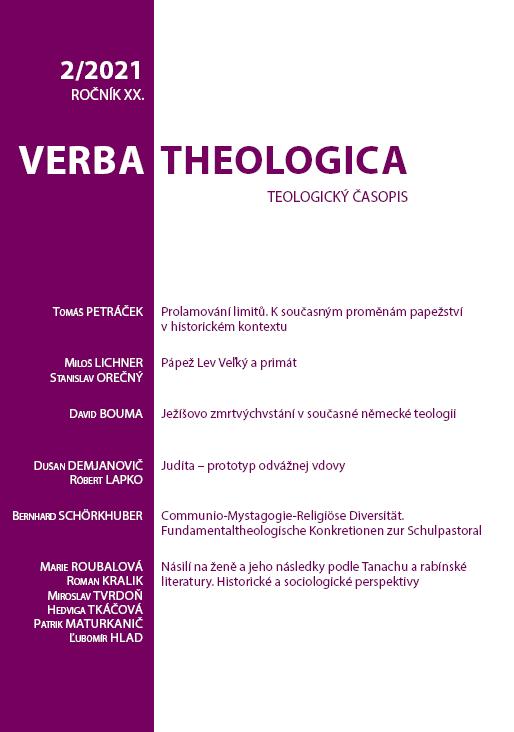Communio-Mystagogie-Religiöse Diversität. Fundamentaltheologische Konkretionen zur Schulpastoral
Communio-Mystagogy-Religious Diversity. Fundamental theological concretions on school pastoral care
Author(s): Bernhard SchörkhuberSubject(s): Christian Theology and Religion, Theology and Religion, Biblical studies, Systematic Theology
Published by: VERBUM - vydavateľstvo Katolíckej univerzity v Ružomberku
Keywords: fundamental theology; revelation; faith; experience; communion; mystagogy; creation spirituality; diversity; religious plurality; art of living;
Summary/Abstract: Systematic theology, in its task of reconstructive appropriation of faith, often depends on practical reflection. Systematic theology, beyond its purely selfreferential language and thought games, should also engage in practical mediation problems and not farm them out to practical theology. If for this mediation it is theologically valid that the content of faith cannot be detached from the free acceptance of freely given love and cannot be presented abstractly as deducible truth of reason, then the specific addressees have a constitutive role for the arrival of revelation. This understanding of faith and revelation must be based on reflecting practical theology (such as pastoral care in schools) as a practical science of perception in view of anthropological research and on illuminating the claimed a priori openness of human beings to an ultimate word. For the hearer of the word (Karl Rahner) is not a tabula rasa. Rather, he always already knows something and has always already had experiences. Fundamental theology has a double perspective: it is concerned with the subsequent assurance of faith for those who believe, but also, and especially in the secular space (the school), with making faith possible for those who do not believe and are searching. Here the reference to practice is a primary and receiving as well as stimulating access with that basis of experience, to which also fundamental theology must reflectively refer, if it does not want to lose its character as a science of experience. These constants give food for thought when practical theology (pastoral care in schools) offers a reflective sign-of-the-time experience in the context of fundamental theological responsibility for faith as ancilla hermeneuticae and in the focused view of communion, mystagogy, creation spirituality, religious diversity and art of living.
Journal: Verba Theologica
- Issue Year: XX/2021
- Issue No: 2
- Page Range: 59-81
- Page Count: 23
- Language: German

